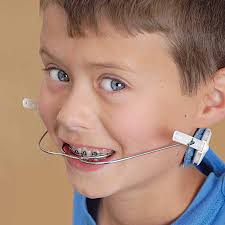Mini Sheet: Riding postman with woman and child (Germany, Saarland 1952)
Riding postman with woman and child (Germany, Saarland 1952)
30 March (Germany, Saarland ) within release Stamp exhibition IMOSA goes into circulation Mini Sheet Riding postman with woman and child face value 10*(30+10) French franc
| Mini Sheet Riding postman with woman and child in catalogues | |
|---|---|
| Michel: | Mi: DE-SL 316KB |
Mini Sheet is square format.
Also in the issue Stamp exhibition IMOSA:
- Stamp - Riding postman with woman and child face value 30+10;
- Mini Sheet - Riding postman with woman and child face value 10*(30+10);
- Gutter Pairs - Riding postman with woman and child face value 2*(30+10);
Mini Sheet Riding postman with woman and child it reflects the thematic directions:
Biologically, a child (plural: children) is a human being between the stages of birth and puberty. The legal definition of child generally refers to a minor, otherwise known as a person younger than the age of majority. Child may also describe a relationship with a parent (such as sons and daughters of any age) or, metaphorically, an authority figure, or signify group membership in a clan, tribe, or religion; it can also signify being strongly affected by a specific time, place, or circumstance, as in "a child of nature" or "a child of the Sixties". There are many social issues that affect children, such as childhood education, bullying, child poverty, dysfunctional families, child labor, hunger, and child homelessness. Children can be raised by parents, by fosterers, guardians or partially raised in a day care center.
Headgear may be worn for protection against cold (such as the Canadian tuque), heat, rain and other precipitation, glare, sunburn, sunstroke, dust, contaminants, etc. Helmets are worn for protection in battle or against impact, for instance when riding bicycles or motor vehicles. There are also hats that are worn for protection from the cold
The horse (Equus ferus caballus) is one of two extant subspecies of Equus ferus. It is an odd-toed ungulate mammal belonging to the taxonomic family Equidae. The horse has evolved over the past 45 to 55 million years from a small multi-toed creature, Eohippus, into the large, single-toed animal of today. Humans began to domesticate horses around 4000 BC, and their domestication is believed to have been widespread by 3000 BC. Horses in the subspecies caballus are domesticated, although some domesticated populations live in the wild as feral horses. These feral populations are not true wild horses, as this term is used to describe horses that have never been domesticated, such as the endangered Przewalski's horse, a separate subspecies, and the only remaining true wild horse. There is an extensive, specialized vocabulary used to describe equine-related concepts, covering everything from anatomy to life stages, size, colors, markings, breeds, locomotion, and behavior.
A woman is an adult female human. Before adulthood, a woman is referred to as a girl (a female child or adolescent)



